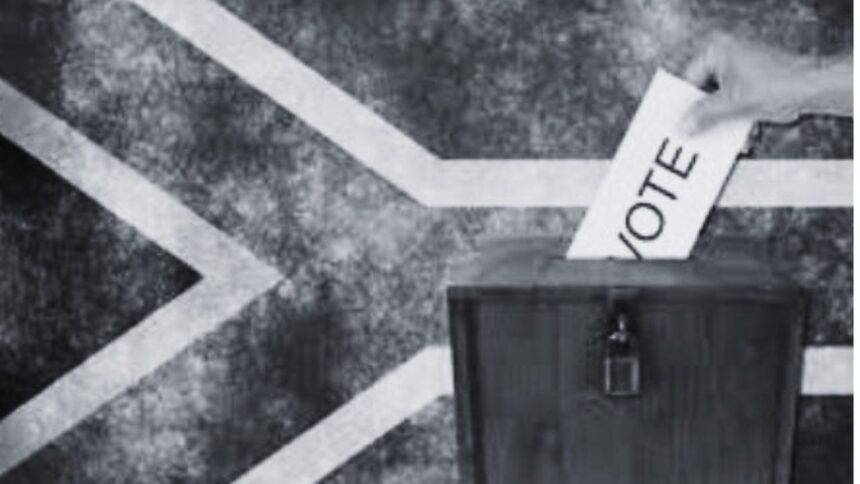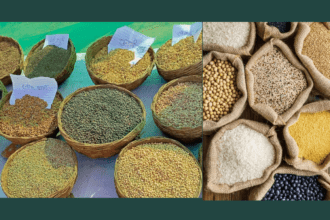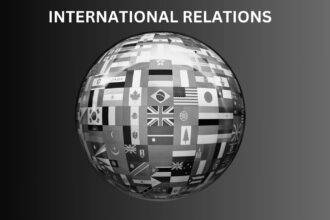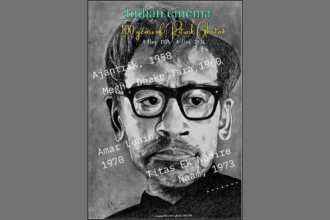30.05.2024
South Africans voted on 29th May. It is the most competitive election since the end of apartheid. A total of seventy political parties and eleven independent candidates are contesting in the national and provincial assemblies. The national ballot had 52 parties listed. The ruling ANC, led by President Cyril Ramaphosa, is competing against opposition parties, including the pro-business Democratic Alliance, Marxist Economic Freedom Fighters and dozens of smaller parties. South African constitution stipulates that the National Assembly must hold its first sitting no more than 14 days after the election result has been declared. At its first sitting, the National Assembly will hold a vote to elect one of its members to be the country’s President. There can be several rounds of voting if no candidate wins 50% or more in the first round. If no political party has a majority, two or more parties will have to team up to get the votes necessary to elect a President.
Opinion polls suggested the ANC (African National Congress) could lose its parliamentary majority after 30 years in government. The vote count began soon after the election was over. Final results are not expected to be announced before Sunday. It is feared that if President Cyril Ramphosa’s Party drops below 50% for the first time since it came to power in 1994, it may force him to seek coalition partners. As per the latest result tally by the Electoral Commission of South Africa, registered voters are 27,672,264. Till now, ANC has got 866,442 (43.07%), DA-502159 (26.96%), EFF-175,650 (8.73%) and MKP-164,054 (8.16%), respectively.
Julius Malema is the leader of the Economic Freedom Fighters (EFF) party. His party is an anti-establishment, Marxist, PAN-African Party that keeps a sharp focus on the rights of Black South Africans and accuses the ANC of failing to cater to that core population. Malema is controversial for his radical stand and, at times, for violent political statements and seeks to redistribute land owned by the white minority to Black people or convert lucrative privately owned mines to government property.
Out of about 17% of votes counted so far across the country, the ruling ANC currently sits comfortably at the top with just 43%. DA is second with 26%.
Political analyst Angelo Fick states that if the ANC scores up beyond 43%, they may be working with EFF, or they may work with a coalition of smaller parties which may be more complicated to manage. If the ANC comes to 47 or 48%, they may need one or two smaller parties that are breakaways from their own original stable to get them over that, which might be helpful for them. If they are scoring below 40%, which is unlikely, then the dynamic is widely open, and they may combine in ways that nobody would have imagined. Politics is a strange business, and it has seen coalitions happen between people before, particularly in South Africa, that one wouldn’t have thought would go together.
Why ANC is not attractive to majority of voters in this unpredictable election 2024? After playing a key role in liberation after apartheid, could ANC lose its majority for the first time?
The young voters feel disillusioned with the ANC due to the country’s poor economic prospects, corruption and crime. Yunus Carrim, a member of parliament since 1994 and leader of the South African Communist Party, is reported to have stated that the younger generation understandably did not go through the struggle era, so they don’t feel the loyalties to the ANC that all the people do. They have not been through what apartheid was, and they are angry at politicians. The age group 18-42 years old is the largest component of the new generation of voters, and the ANC has to take that into account. We can’t rely solely on the memories of the older generation who were engaged in the apartheid struggle.
Ms. Shara Singh, a candidate of Democratic Alliance, the main Opposition Party, is a 4th generation Indian and an overseas citizen of Indian cardholder, opines that “unemployment, corruption, crimes have gone up during the reign of ANC.” “The poor quality of the service delivery system is also being highlighted in the campaign”, she said.
Anusha Pillay, the media and communications officer in ANC, a South African Indian, states that the ANC campaign has been largely focused on transforming the economy, creating jobs, building inclusive industries, addressing the cost of living, investing in defence and advancing freedom. The ANC has been working towards building a better life for all with equal opportunities and ensuring that the wealth of the country is more equitably shared.
Disgruntled South Africans are moving to an array of opposition parties. One is led by South Africa’s former President Jacob Zuma’s MK Party. The arrest of the Gupta brothers by Indian authorities is a shot in the arm for South Africa’s ruling ANC and the country’s president, Cyril Ramaphosa. Zuma is accused of backing the Gupta brothers in lieu of personal favours, including financial emoluments. The Zumas and Guptas, the two families, became so closely linked that a joint term was coined for them – the “Zuptas” with several members of the Zuma family working in firms owned by the Guptas. When a charted plane transporting guests for the wedding of their sister’s daughter landed at the Waterkloof Air Base near Pretoria in 2013, the Gupta brothers caused a stir. Only visiting heads of State and diplomatic delegations are allowed to use the base. The incident prompted a significant outcry, so much so that it was dubbed “Guptagate”. With such a reputation, the MK Party is entering the fray in the 2024 election in South Africa.
What is at stake for ANC in 2024?
South Africa, one of the continents’ richest and most influential countries, goes to polls amid concerns about unemployment, high crime rate and power cuts. ANC has been the dominant political party since it successfully fought against apartheid in 1994. Its share of vote has been falling steadily since its high water-mark of 70% in 2004.
One of the factors that has eaten into ANC’s support base is the state of the economy. Taking the last 30 years as a whole, South Africans, on average, have become richer. Poverty levels have fallen. In general, people have access to better housing and health care. But since 2011, there has been a downward trend in average income, leaving many feeling less well off and leading to accusations that the ANC has mismanaged the economy. The Coronavirus pandemic and the global spike in prices have added to its owes. Income and wealth are not evenly distributed – across the population. The richest 20% of the population holds nearly 70% of the income. The poorest 40% of the population hold just 7% of the nation’s income.
As per the World Bank report, unemployment rate among the youth (15-34 years old) is 32.9%, which is the highest in the world. More than 44% of that age group don’t have education, training or employment. A UN report says that lack of work is a “ticking – time bomb” suggesting that it could be a source of political instability in future.
As per the report of BBC News on May 22, 2024, the rate of robbery, rape and murder remains unchanged compared to the last decade. On average, in the last three months of 2023, one person was murdered in South Africa every 20 minutes. In the same period, more than 130 women were raped every day. President Ramaphosa has described the level of violence as a war being waged against women, but ANC is criticised over its handling of the problem.
Load-shedding has disrupted people’s lives and damaged economic growth. Poor maintenance, ageing infrastructure, corruption and mismanagement have all been blamed for failures within the state-owned power company Eskom.
Waves of Xenophobic violence is another major hindrance to the economic growth of the country, which is not properly handled by the ANC, it is alleged.
One hopes that there should be national consensus to address these pressing problems no matter who becomes the next President of South Africa in 2024.
- The Columnist is a Freelance Researcher on International Issues with a Ph.D and D.Litt in Political Science.
Comments
0 comments








